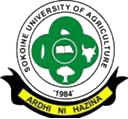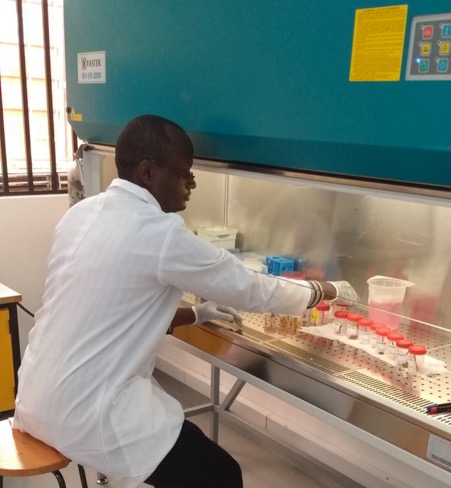As soon as I completed my field work and portion of my laboratory work that I could do at Sokoine University of Agriculture’s Southern African Centre for Infectious Disease Surveillance – African Centre of Excellence for Infectious Diseases of Humans and Animals (SACIDS-ACE) in Tanzania, I was very anxious to start my PhD research internship at the Korea Institute of Science and Technology (KIST). The opportunity was made possible through a scholarship from the Partnership for skills in Applied Science, Engineering and Technology (PASET) Regional Scholarship and Innovation Fund. The prestigious scholarship covers the full cost of my PhD studies at Sokoine University and provides for my internship at KIST.
The entry requirements to KIST were rigorous and each of us had to take part in documents screening, sitting for Test of English as a Foreign Language (TOEFL), an oral interview, as well as engage with potential researchers at the institute before being accepted. Five other students supported by RSIF were also accepted besides me. Sylvia Maina Wairimu, Mabwi Humphrey Andalo, and Sodedji Frejus, who are with me at the Gangneung Natural Products Research Institute, while Waema Maxwell and Emmanuel Kifaro are at the KIST main campus (Seoul).
PASET, which is an initiative of African Governments, with support from the Government of Korea and the World Bank, aims at strengthening the science and technology capability of sub-Saharan African countries for economic development. RSIF is PASET’s flagship initiative and the first Pan-African science fund of its kind. RSIF will train applied researchers in sciences and engineering, build research capacity in sub-Saharan African universities and conduct research for Africa’s development. This initiative is timely as Africa responds to challenges such as COVID-19. RSIF competitively provides PhD scholarships for 3-4 years training for citizens of sub-Saharan African (SSA) countries at Host Universities in Africa, and ‘sandwich’ training at selected International Partner Organizations.
As soon as I arrived at KIST, I was provided with a workstation, where I could place my belongings and computer. I immediately began an online Biosafety course on Living Modified Organisms (LMO), which I was informed, was a requirement for accessing laboratory facilities at the institution. The course was very useful and introduced me to the general principles on handling samples and instruments in the laboratory and other aspects of working in the laboratory. The course also included information on how to handle emergencies, such as accidents and, for instance, the use of the fire extinguishers in case of fire.
After receiving primers, master mix, and getting the required reagents, I was able to begin running my samples. My research is on Transmission dynamics and antimicrobial resistance of thermophilic Campylobacter in humans, animals, and the environment in Kilosa District, Tanzania. I am making use of Sequencing technology, Polymerase Chain Reaction (PCR), Gel electrophoresis, and an ultra-violet Trans-Illuminator to view bands of amplified DNAs. The research is still ongoing, but I have already been able to prepare and submit a manuscript to a high quality journal. The research is of importance to my country and the wider Africa region.
Please read here for more.







